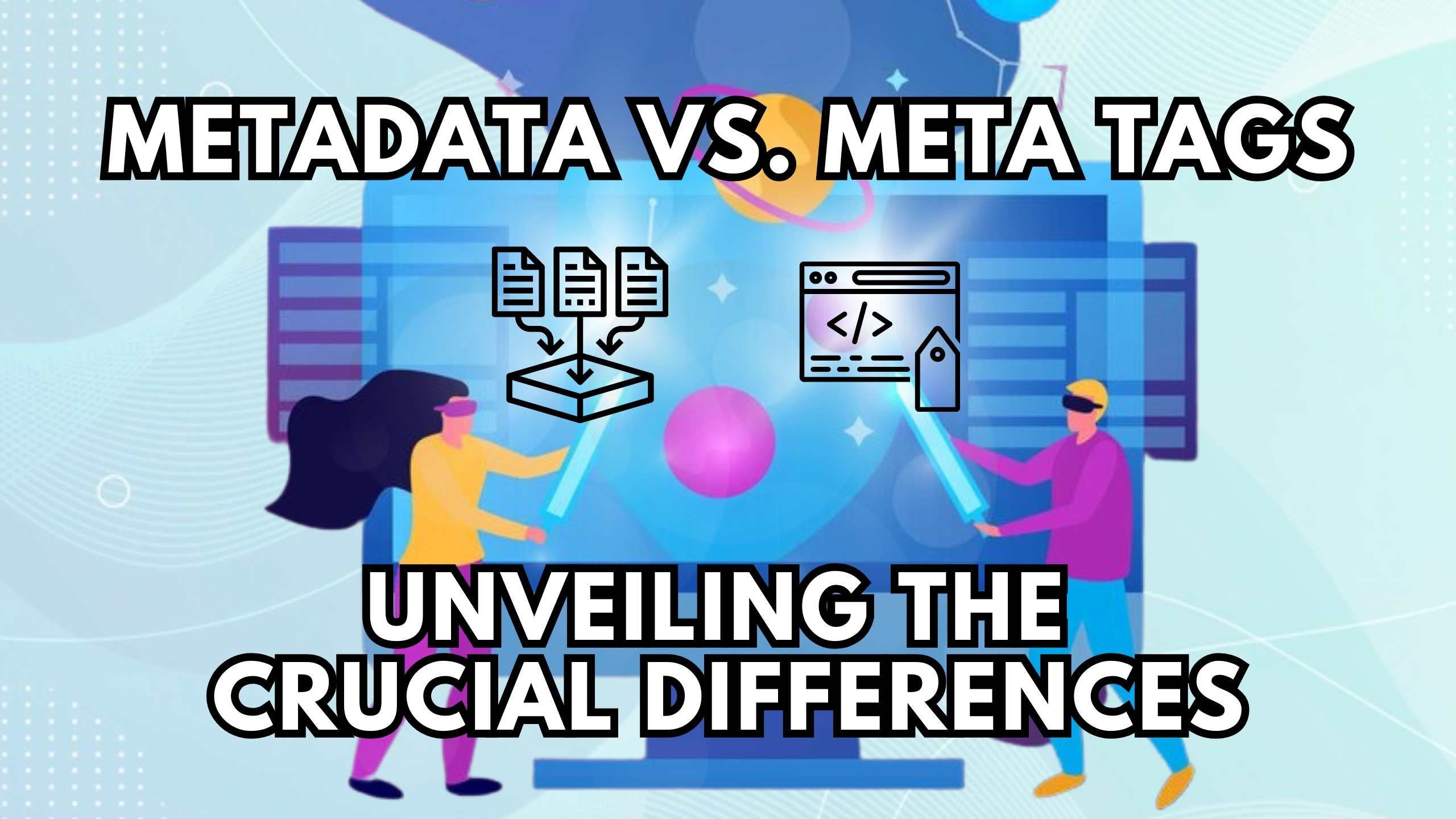Metadata vs. Meta Tags: Unveiling the Crucial Differences
- WebOps Platforms Bug Tracking & Feedback Software Web Development & Design


Metadata vs. Meta Tags: Unveiling the Crucial Differences
In the realm of web development and search engine optimization (SEO), the terms “metadata” and “meta tags” are often used interchangeably, leading to confusion. In this comprehensive guide, we will unravel the crucial differences between metadata and meta tags, shedding light on their individual roles in optimizing online content.
Understanding Metadata
Metadata refers to the broader context of information about data. In the digital world, metadata provides insights into various aspects of a webpage, such as its creation date, authorship, and content summary. Search engines utilize metadata to comprehend the structure and relevance of a webpage’s content.
1. Title Metadata: The title metadata, often referred to as the “title tag,” is a critical element defining the title of a webpage. It plays a pivotal role in SEO, influencing search engine rankings and providing a concise preview of the content.
2. Description Metadata: Description metadata, encapsulated in the “meta description” tag, offers a brief summary of a webpage’s content. While it doesn’t directly impact SEO rankings, it significantly influences user engagement by providing context on search engine result pages (SERPs).
3. Keyword Metadata: Historically, keyword metadata played a substantial role in SEO. However, due to misuse and keyword stuffing, search engines now place less emphasis on it. Including relevant keywords in the content is more impactful for modern SEO.
Deciphering Meta Tags
Meta tags, on the other hand, are specific HTML tags embedded within a webpage’s code. These tags communicate information to web browsers and search engines about how to display and categorize the content. While meta tags fall under the umbrella of metadata, they represent a more granular level of detail.
1. Viewport Meta Tag: The viewport meta tag is crucial for responsive web design. It ensures that webpages are displayed appropriately on various devices and screen sizes, enhancing the user experience.
2. Charset Meta Tag: The charset meta tag defines the character set used on the webpage. It influences how characters are interpreted and displayed, ensuring consistency across different browsers.
3. Robots Meta Tag: The robots meta tag instructs search engine crawlers on how to index and follow links on a webpage. It helps control the visibility of content in search engine results.
SaaS Products for Effective SEO Management
- Ahrefs: Ahrefs is an all-in-one SEO toolset that provides insights into competitor analysis, keyword research, backlink tracking, and site audits. It empowers users to make informed decisions for optimizing their online presence.
- SEMrush: SEMrush is a versatile SEO tool that offers features like keyword tracking, site audit, backlink analysis, and competitive research. It provides actionable data to improve website performance in search engine results.
- Moz: Moz is a comprehensive SEO platform offering tools for keyword research, link building, and site audits. Its focus on actionable insights helps users enhance their website’s visibility.
- Yoast SEO: Yoast SEO is a WordPress plugin that assists users in optimizing their content for search engines. It provides real-time suggestions for improving on-page SEO elements.
- Google Analytics: While not a traditional SEO tool, Google Analytics is invaluable for understanding website traffic and user behavior. It aids in refining SEO strategies based on audience insights.
Conclusion
In essence, understanding the disparities between metadata and meta tags is pivotal for effective SEO. Metadata serves as the overarching information about a webpage, influencing search engine comprehension, while meta tags represent specific details within the HTML code. Employing both strategically contributes to a well-optimized and user-friendly online presence.
Ready to Optimize Your Web Presence?
Elevate your SEO strategy with Subscribed.fyi. Sign up today to access exclusive deals and savings on a range of SaaS tools. Streamline your SEO management, ensuring your content reaches its maximum potential. Unlock Your Savings with Subscribed.fyi Deals Now!
Relevant Links:








